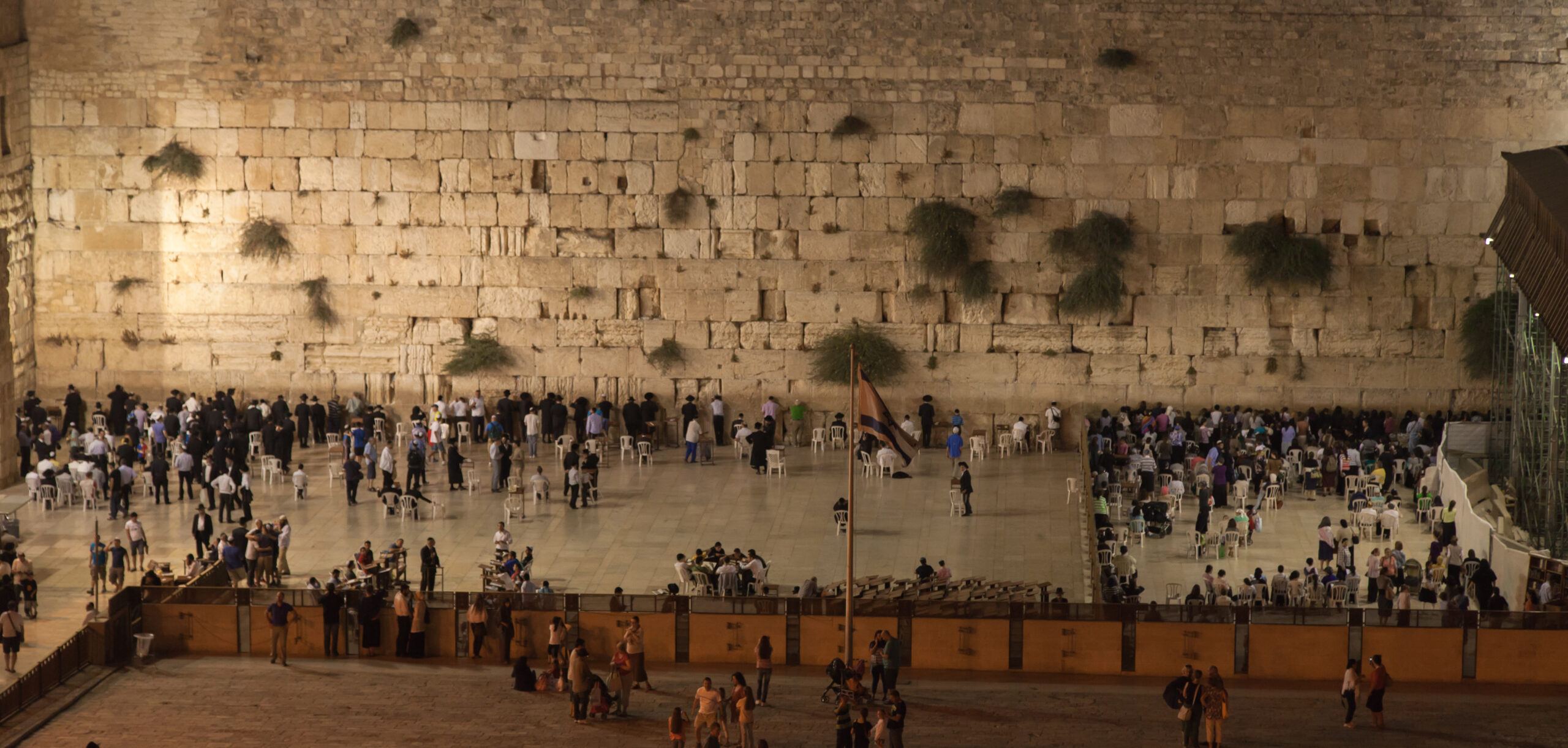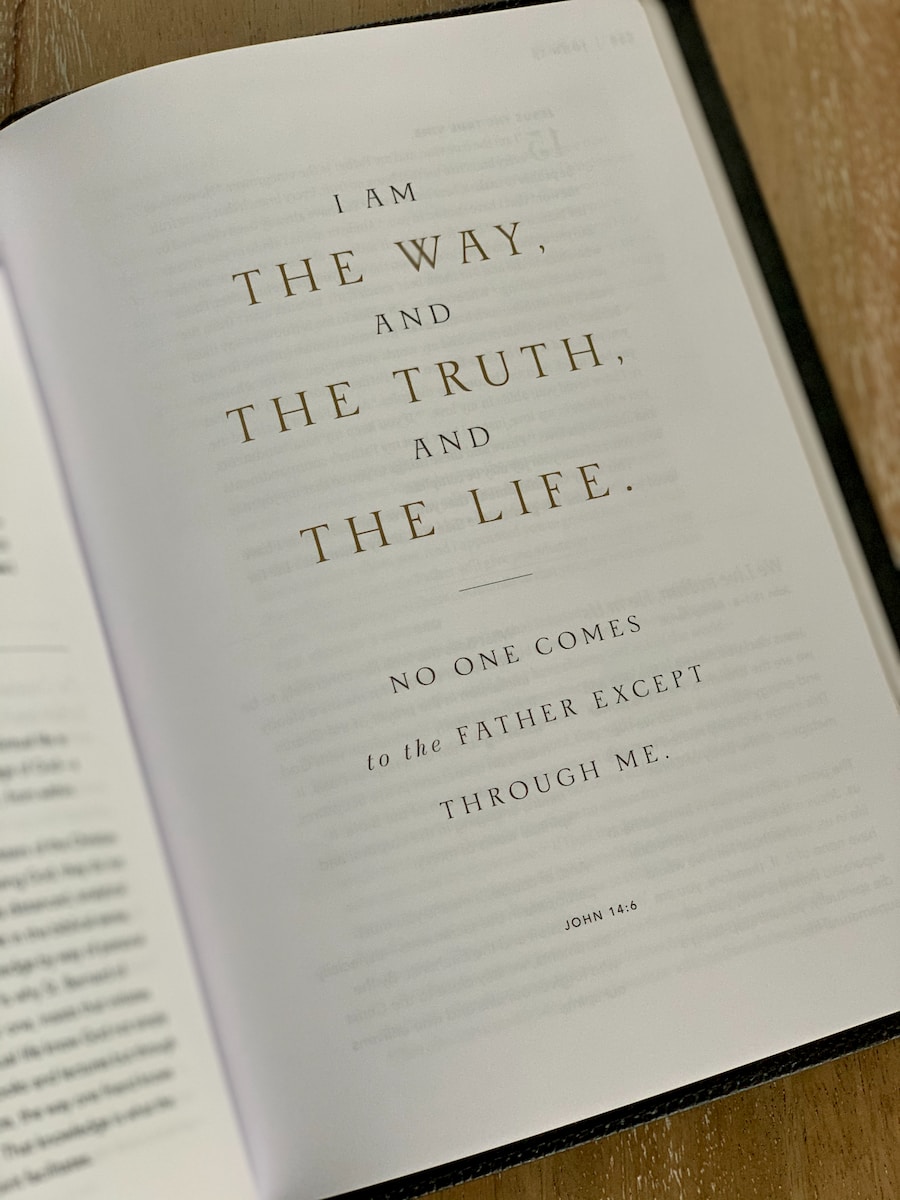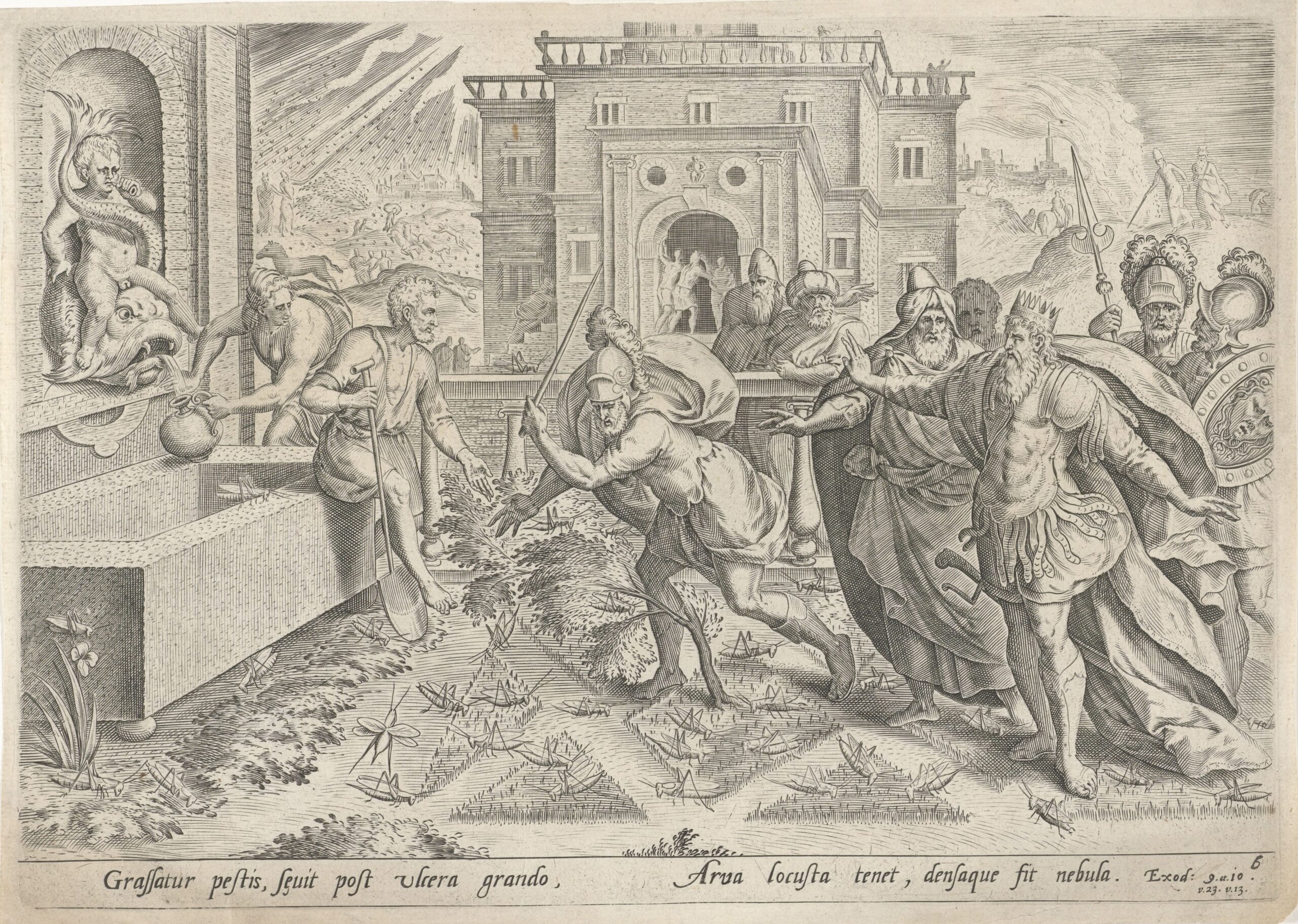Unveiling the Messianic Mystery: Discovering Jesus Prophetic Role in Numbers 18
Unveiling the Messianic Mystery: Exploring the Prophetic and Symbolic Connections of Numbers 18 to Jesus and the Gospel
cover image
Photo by Derek Steen on Unsplash | Commercial use allowed
Messianic Connections in Numbers 18 and the Gospel
The prophetic and symbolic connections between Numbers 18 and Jesus offer profound insights into the Messianic mystery and its relevance to the Gospel. These connections go beyond mere coincidence and serve as a testament to the intricate threads that bind the Old and New Testaments together. Numbers 18, situated within the book of Numbers, provides a detailed overview of the responsibilities of the Levites and the priests in the context of the Israelite community. It not only delineates the specific offerings and tithes designated for the priests and Levites but also underscores the sanctity and reverence associated with these contributions, emphasizing the revered nature of their roles. Additionally, the chapter delves into the consecration and unique role of the priests as intermediaries between the people and the divine, establishing a profound foundation for spiritual leadership and governance within the religious practices of the Israelites.
One specific example of the prophetic connections between Numbers 18 and Jesus is the emphasis on sacred offerings and the consecration of priests, which align with Jesus’ sacrificial role and his identity as the High Priest in Christian theology. This parallel sheds light on the continuity and interconnectedness of biblical narratives, underscoring the enduring relevance of Numbers 18’s revelations about Jesus and the timeless nature of the Messianic mystery.
Furthermore, the symbolic significance of Numbers 18 in relation to the Gospel is profound. The chapter’s depiction of mediation and atonement can be interpreted as symbolic of Jesus’ role as the ultimate mediator and the sacrificial Lamb in Christian belief. Understanding these symbolic connections enriches the comprehension of Jesus’ redemptive mission and the foundational principles of the Gospel, offering believers a deeper understanding of the Messianic mystery and its implications for their faith journeys.
When delving into the prophetic and symbolic connections between Numbers 18 and Jesus, it becomes evident that the chapter holds profound insights that foreshadow the role of Jesus as the ultimate mediator between God and humanity. These connections not only deepen the understanding of Jesus’ pivotal role in the salvation and reconciliation of humanity with God but also offer a lens through which to comprehend the redemptive significance of Jesus’ ministry. By drawing parallels between the priestly duties outlined in Numbers 18 and Jesus’ role as the High Priest, believers gain a deeper appreciation for the profound symbolism embedded within the Gospel narrative, fostering a more nuanced perspective on Jesus’ life, ministry, and the divine revelations within Scripture.
Overview of Numbers 18 in the Bible
Numbers 18 serves as a pivotal chapter that delineates the duties and functions of the Levites and the priests within the religious and communal structure of ancient Israel. It provides a comprehensive framework for understanding the sacred responsibilities assigned to these groups and offers a window into the religious customs and divine ordinances that governed the Israelite community. The chapter’s detailed delineation of the duties and functions of the Levites and priests offers a rich tapestry of insights into the spiritual and communal life of the ancient Israelites. Additionally, the chapter underscores the sanctity and reverence associated with the contributions made to the priests and the Levites, emphasizing the revered nature of their roles within the Israelite community.
#MessianicConnections #Numbers18andJesus #PropheticInsights #SymbolismInScripture #MessianicRelevance #JesusAsHighPriest #RedemptiveMission #BiblicalConnections #ScripturalSymbolism #MessianicTeachings #DivineRevelations #OldTestamentForeshadowing #NewTestamentFulfillment #RabbiJasonSobelInsights #MessianicMysteryExploration #ScriptureConnections #FaithJourney #SpiritualGrowth #BiblicalSignificance #UnderstandingJesus #GospelRelevance #SacredOfferings #PriestlyRole #ChristianTheology #MessiahInScripture #ExploringTheWord #ScripturalDepth #TransformationThroughFaith #DivineMysteries #PersonalFaith #ScriptureStudy #DeepeningFaithUnderstanding #ExploringBiblicalTexts #SpiritualInsights #GospelPerspectives #BiblicalContext #DivineConnections #FaithReflection #DiscoveringJesus #BiblicalInterpretation
One specific example that illustrates the importance of understanding the cultural context of Numbers 18 is the significance of the priestly role in mediating between the people and the divine in the socio-religious landscape of ancient Israel. By exploring the cultural milieu of first-century Judea, readers can grasp the societal norms, religious practices, and political dynamics that shaped the environment in which the priests operated. This deeper comprehension fosters a more profound appreciation of the profound impact the priests had on the spiritual and communal life of the Israelites, shedding light on the symbolic and prophetic layers embedded within their responsibilities.
Furthermore, understanding the cultural context also aids in recognizing the continuity between the Old and New Testaments, as it elucidates how Jesus’ ministry and teachings fulfilled and transformed the cultural and religious motifs present in the Hebrew Scriptures. By exploring the cultural context, readers can discern the threads of continuity that bind the Old and New Covenants, unveiling the seamless narrative of God’s redemptive plan throughout history and underscoring the divine mysteries about Jesus revealed in the Old Testament that still hold significance for believers today.
Moreover, the cultural context provides a lens through which the deeper meanings behind Jesus’ life and teachings can be comprehended, enriching the exploration of the Messianic mystery. Understanding the cultural context of Jesus’ time offers insights into the historical and theological foundations of Christian faith, fostering a more holistic understanding of the spiritual and communal dynamics that shaped the religious practices of ancient Israel. By delving into the cultural milieu of first-century Judea, readers can gain valuable insights into how Jesus’ life and teachings intersected with these cultural practices, shedding light on the symbolic and prophetic layers embedded within these traditions and their profound relevance to contemporary spiritual lives.
Understanding the Messianic Mystery
Numbers 18 holds profound prophetic insights that foreshadow the crucial role of Jesus as the ultimate mediator between God and humanity. For instance, the themes of consecration, priesthood, and sacred offerings within Numbers 18 are seen as prefiguring Jesus’ redemptive work and his role in bridging the divine-human relationship. Specific verses and passages within Numbers 18 are analyzed for their allusions to Jesus’ future ministry and the redemptive aspects of his mission. This sheds light on the continuity and interconnectedness of biblical narratives and the enduring relevance of Numbers 18’s revelations about Jesus, underscoring the timeless nature of the Messianic mystery.
The prophetic connections between Numbers 18 and Jesus go beyond mere coincidence and serve as a testament to the intricate connections that run through the fabric of the Old Testament. For instance, the emphasis on the consecration of priests in Numbers 18 can be seen as a foreshadowing of Jesus’ role as the ultimate High Priest in Christian theology. This parallels the concept of Jesus as the mediator between God and humanity, a central tenet of Christian belief that finds its roots in the themes outlined in Numbers 18.
One specific example of the prophetic connections between Numbers 18 and Jesus is the significance of the offerings designated for the priests and Levites, which find resonance in Jesus’ sacrificial mission. The chapter’s depiction of the sacred offerings and the consecration of priests can be interpreted as prefiguring Jesus’ redemptive work and his role in bridging the divine-human relationship. By drawing parallels between the priestly duties outlined in Numbers 18 and Jesus’ role as the High Priest, believers gain a deeper appreciation for the profound symbolism embedded within the Gospel narrative, fostering a more nuanced perspective on Jesus’ life, ministry, and the divine revelations within Scripture.
Furthermore, specific verses and passages within Numbers 18, such as the instructions for the Levites and the laws regarding the contributions to the priests, can be analyzed for their allusions to Jesus’ future ministry. These passages provide glimpses into the redemptive aspects of Jesus’ mission, offering prophetic insights that resonate with the foundational teachings of the New Testament. Therefore, the prophetic connections between Numbers 18 and Jesus serve as a compelling testament to the divine coherence of the Old and New Testaments, bridging the narratives of the Hebrew Bible with the life and mission of Jesus in the Gospels.
Symbolic Significance of Numbers 18 in Relation to the Gospel
When delving into the symbolic significance of Numbers 18 in relation to the Gospel, one can uncover profound insights that illuminate the core messages of Christian belief. The chapter’s depiction of sacred offerings and the consecration of priests holds symbolic weight that resonates with the redemptive mission of Jesus. For instance, the concept of atonement and mediation within Numbers 18 parallels Jesus’ role as the ultimate mediator and sacrificial Lamb in Christian theology. This symbolic connection serves to deepen the understanding of Jesus’ pivotal mission, reinforcing the foundational principles of the Gospel and highlighting the interconnectedness of Old Testament narratives with the New Testament revelation.
One specific example that illustrates the symbolic significance of Numbers 18 in relation to the Gospel is the emphasis on the consecration and role of priests as mediators between the people and the divine. This sacred mediation between God and humanity establishes a profound foundation for spiritual leadership and governance within the religious practices of the Israelites. The chapter’s depiction of the priests as conduits for communication and connection with the divine realm underscores the significance and reverence accorded to their position, shaping the religious dynamics and communal cohesion within the Israelite society. Understanding these symbolic connections enriches the comprehension of Jesus’ redemptive mission and the foundational principles of the Gospel, offering believers a deeper understanding of the Messianic mystery and its implications for their faith journeys.
Moreover, by drawing parallels between the priestly duties outlined in Numbers 18 and Jesus’ role as the High Priest, believers gain a deeper appreciation for the profound symbolism embedded within the Gospel narrative. This symbolic significance not only enriches the comprehension of Jesus’ sacrificial mission but also underscores the continuity and coherence of biblical revelations, bridging the Old Testament foreshadowing with its fulfillment in the New Testament, thus reinforcing the Messianic mystery that permeates Scripture.
Furthermore, the symbolic elements in Numbers 18, particularly the emphasis on mediation and sacred offerings, offer a multifaceted lens through which to comprehend the redemptive significance of Jesus’ ministry. By drawing parallels between the priestly duties outlined in Numbers 18 and Jesus’ role as the High Priest, believers gain a deeper appreciation for the profound symbolism embedded within the Gospel narrative, fostering a more nuanced perspective on Jesus’ life, ministry, and the divine revelations within Scripture. This symbolic significance not only enriches the comprehension of Jesus’ sacrificial mission but also underscores the continuity and coherence of biblical revelations, bridging the Old Testament foreshadowing with its fulfillment in the New Testament, thus reinforcing the Messianic mystery that permeates Scripture.
Exploring the Messianic connections in Numbers 18 presents an opportunity for believers to deepen their understanding of Jesus and the Gospel, unveiling profound prophetic and symbolic insights that resonate with the core tenets of Christian faith. By examining the prophetic connections between Numbers 18 and Jesus, individuals can gain a more comprehensive understanding of the Messianic mystery and its enduring significance. The emphasis on the consecration and role of priests in Numbers 18 foreshadows Jesus’ identity as the ultimate High Priest in Christian theology, mediating between God and humanity. This prophetic alignment provides a compelling framework for contemplating the redemptive mission of Jesus and its implications for personal faith journeys, inviting readers to engage with Scripture in a transformative manner. Encouraging readers to explore these symbolic connections fosters a deeper appreciation of the Messianic mystery and its implications for spiritual growth and discipleship.
In conclusion, the call to exploration is not merely an invitation to study historical texts but a beckoning to embark on a transformative journey of faith, delving into the divine mysteries hidden within Scripture and their profound relevance to contemporary spiritual lives. By engaging with the Messianic mystery revealed in Numbers 18, individuals can deepen their understanding of Jesus, the Gospel, and their personal relationship with God, fostering a vibrant and dynamic faith journey that is enriched by the prophetic and symbolic connections within Scripture.



